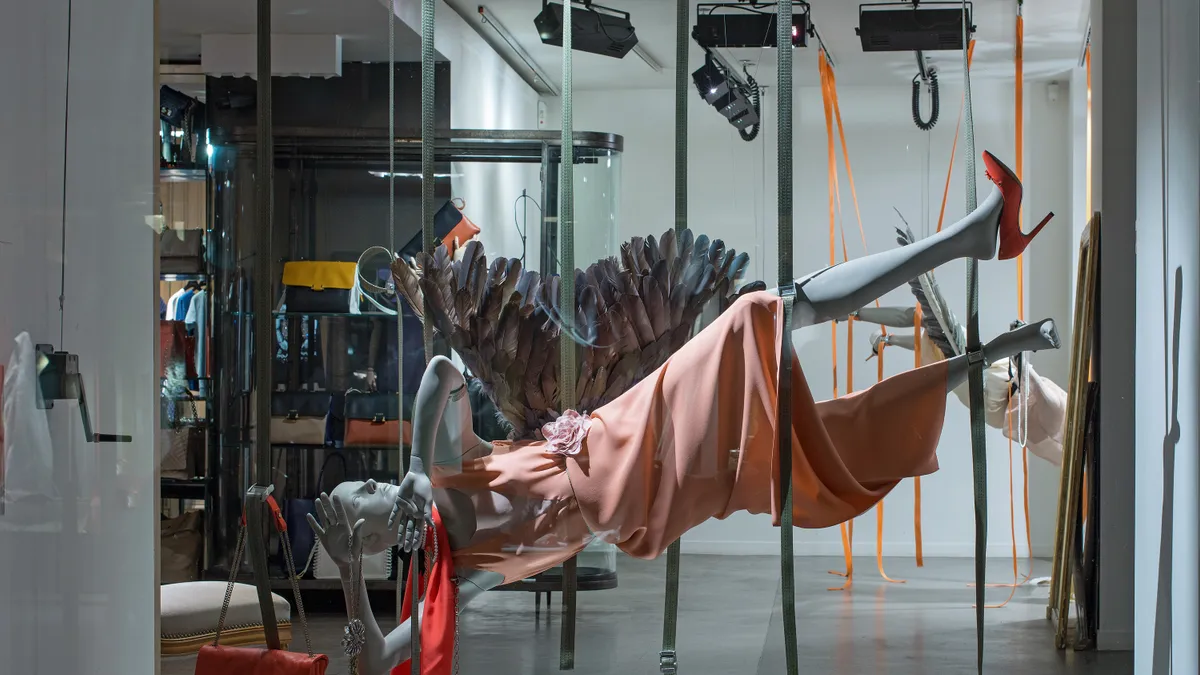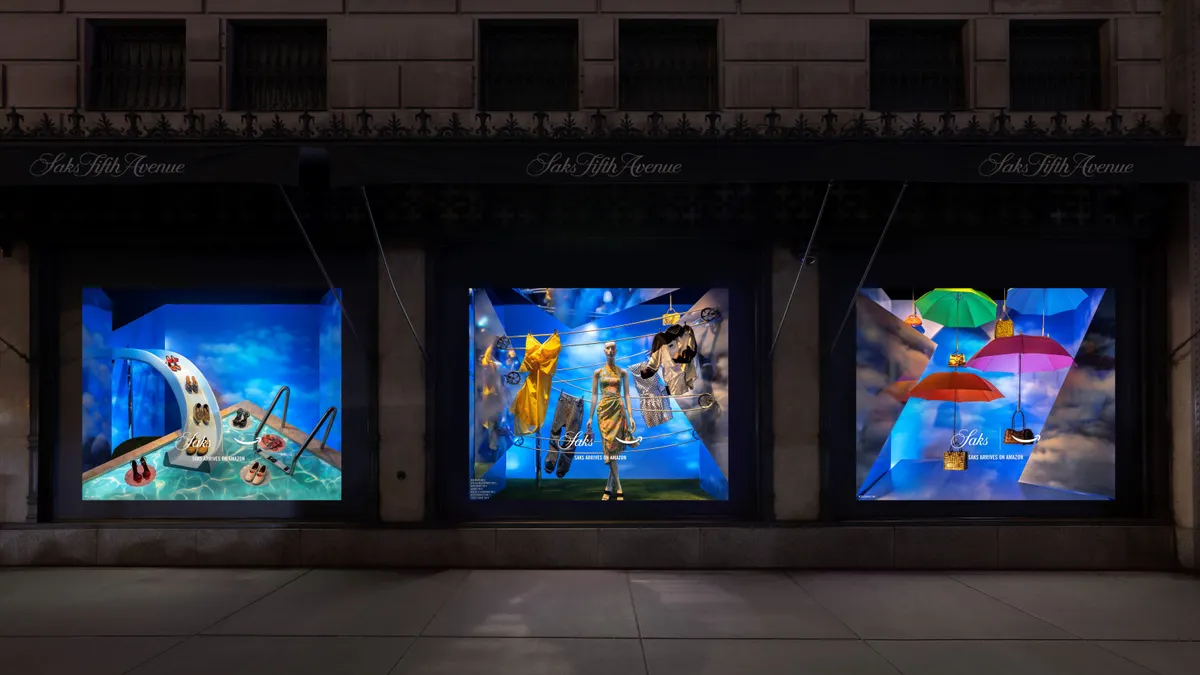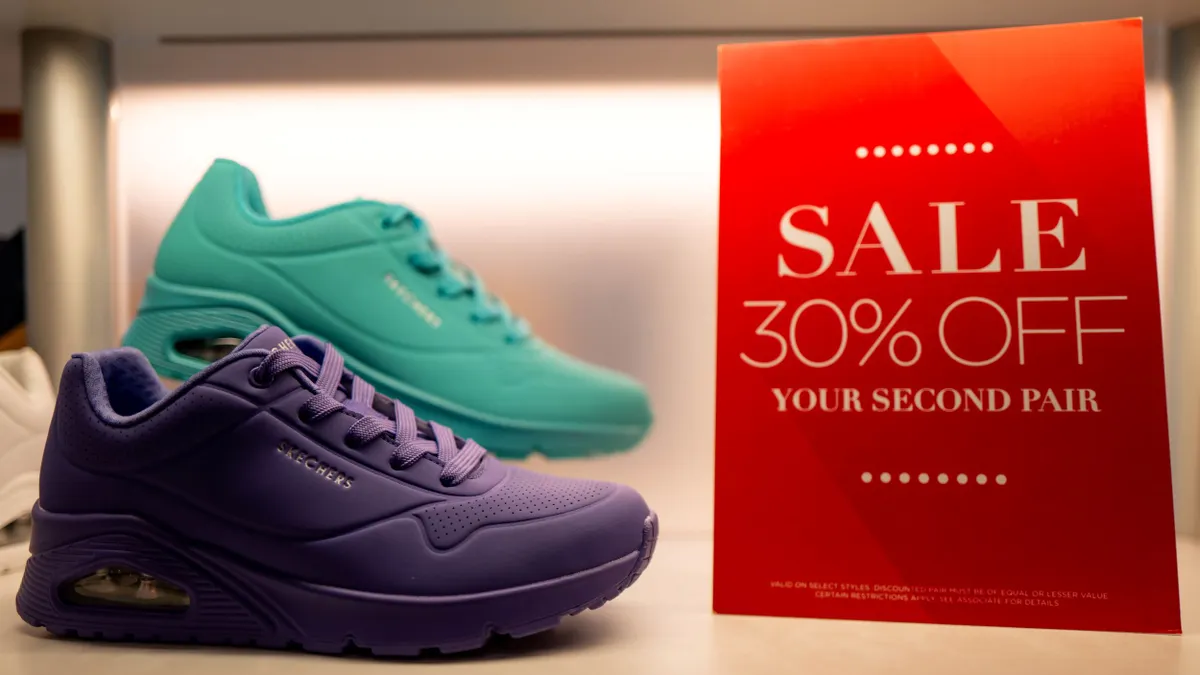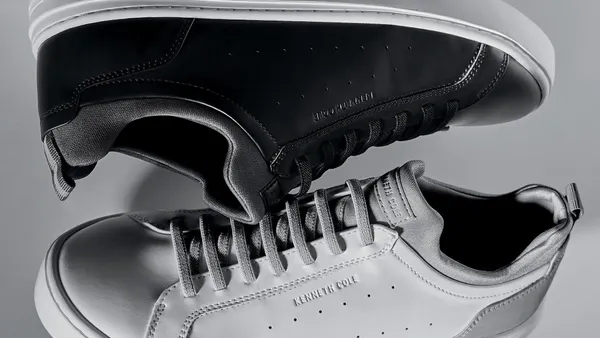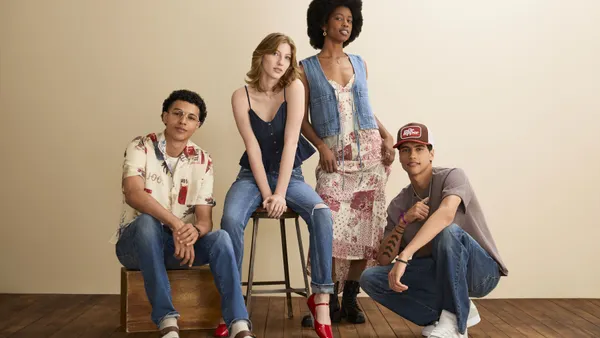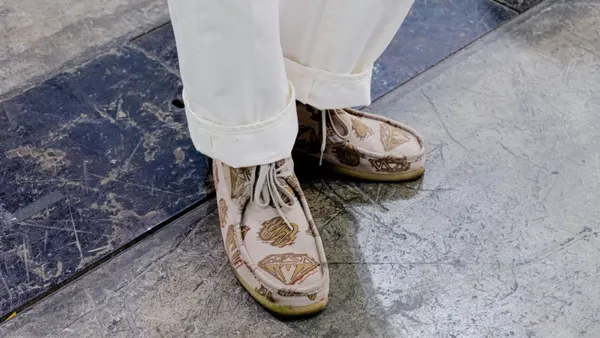Dive Brief:
- Lanvin Group saw a 6.4% increase in revenue for the first half of 2023, up 215 million euros, or about $235 million for the period, the company reported Wednesday.
- Increases were strongest in China, which saw 13.9% growth for the period, but overall gains were dampened by the Lanvin brand, which saw a 10.8 % revenue drop year over year to 57 million euro in the first half of 2023, from 64 million euros for the same period last year.
- Its flagship brand was affected by “its focus on a creative transition as well as comparatively fewer key product and marketing initiatives in H1 2023 versus H1 2022,” the company said in the release.
Dive Insight:
In April, Bruno Sialelli, Lanvin’s creative director, left the house after four years. His exit signaled a new direction for the brand, which included the creation of the collaboration-centric Lanvin Lab, plus a new leather goods and accessories division.
Lanvin Group plans to announce a new artistic director in the coming months who will work alongside Lanvin Lab. That hire and Lanvin Lab will work in tandem “to drive brand heat more consistently going forward,” per the release
The company also stated that it anticipates second half growth from “key product launches, collaborations, and marketing initiatives, as well as the opening of the new New York City flagship store on Madison Avenue and entry into the Middle East market.”
Performance for other Lanvin Group brands was strong.
“We have done the groundwork for our brands to accelerate their growth and are excited about our prospects for the remainder of 2023," Joann Cheng, chair and CEO of Lanvin Group, said in the earnings statement. She added that Sergio Rossi sales were up 22.4% and Wolford grew 8.4% following the hiring of Nao Takekoshi as its creative director.
“We also made several strategic reorganization decisions with respect to Lanvin which had an expected short-term impact in the first half of 2023,” Cheng added. “We believe we have now placed Lanvin in a much stronger position and look forward to seeing the results of these decisions, such as a new collection from our first Lanvin Lab guest designer, the Grammy-winning artist, Future."
When the company announced the collaboration with Future in June, it said it planned to invite subsequent collaborators across a variety of creative fields, adding that these collaborations would complement the brand’s traditional seasonal collections.
In 2018, the house of Lanvin, founded in France in 1889, was purchased by Chinese private conglomerate Fosun after several years of declining sales. Alber Elbaz, who had served as Lanvin’s creative director for 14 years until 2015, died in April 2021, and the company rebranded as Lanvin Group later that year. However, the company has faced creative and financial challenges and lagged behind its luxury rivals in both sales and status since Elbaz left.
Late last year, Lanvin Group, which manages Lanvin, Wolford, Sergio Rossi, St. John and Caruso, debuted on the New York Stock Exchange, and earlier this year, the group reported a 37% revenue increase for 2022 in its first public disclosure since listing on the NYSE.



